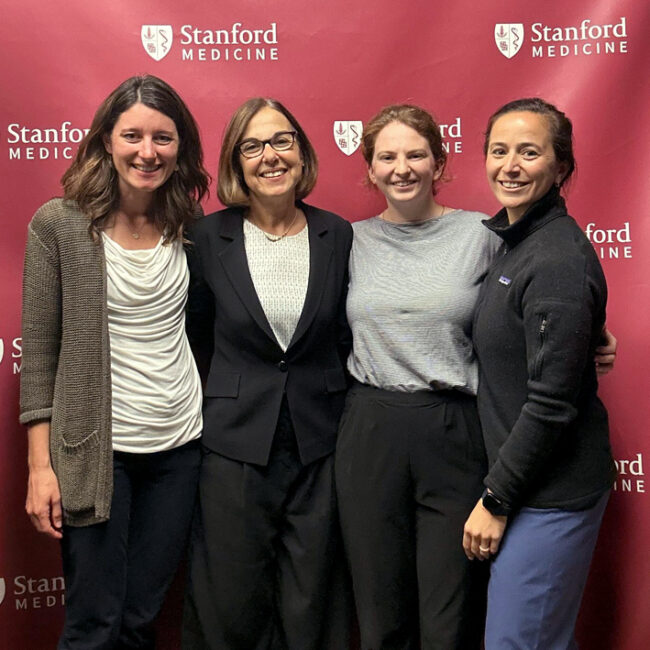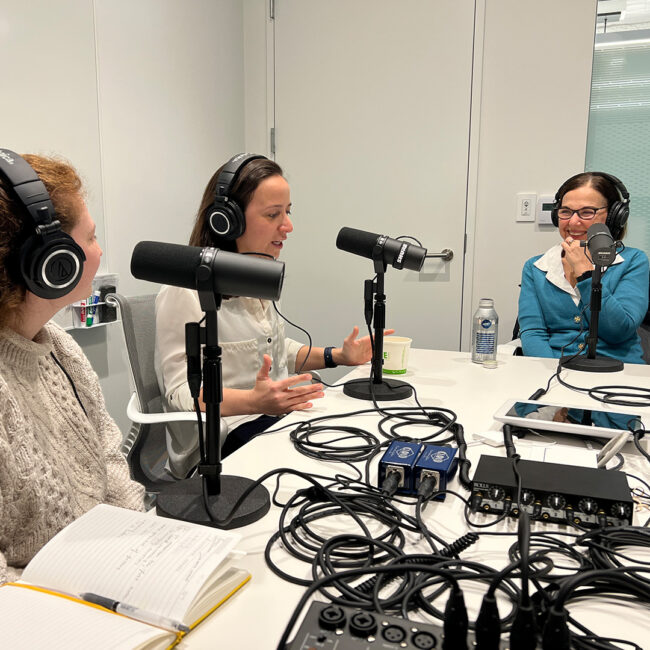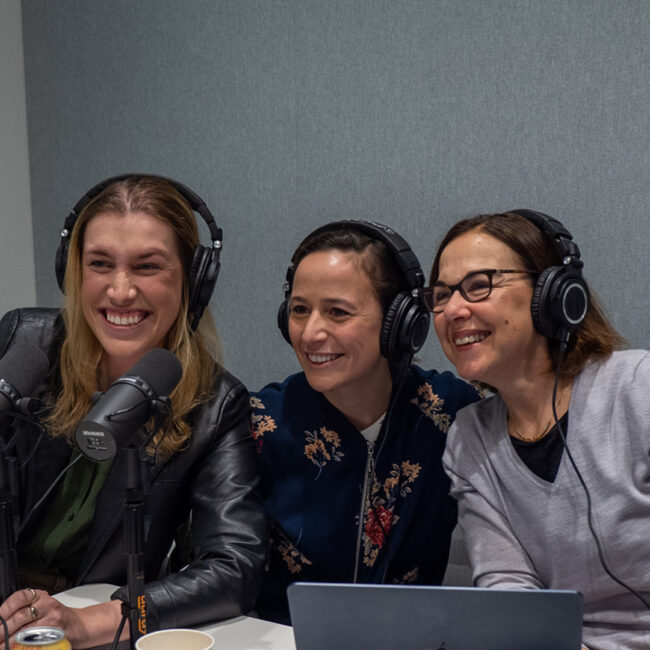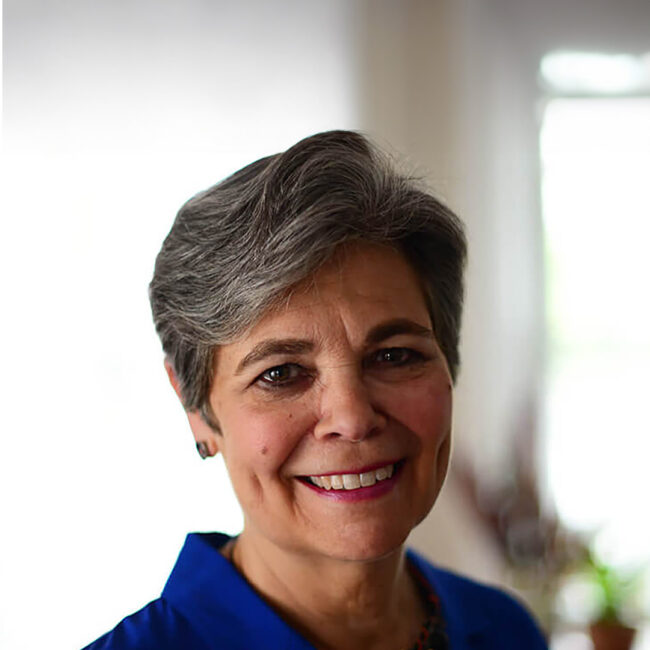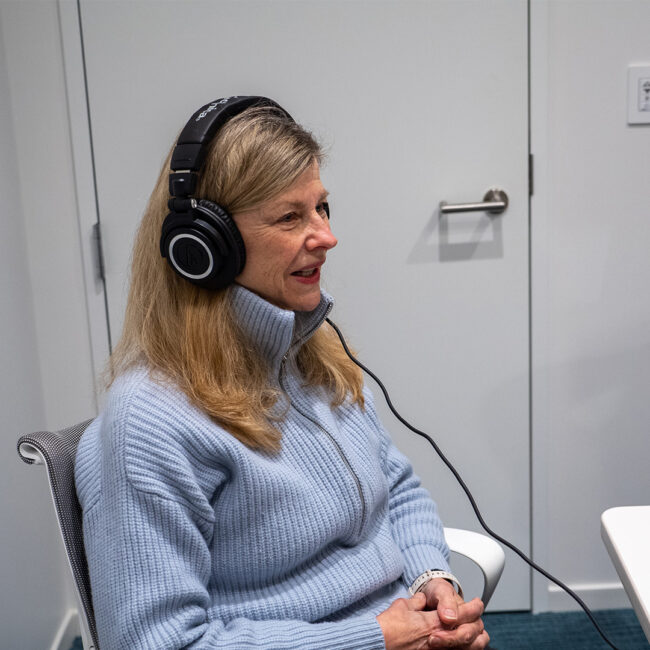Listen on:
Episode Transcript:
Lidia Schapira:
Welcome to the finale of Health After Cancer. I'm Lidia Schapira, and with me are Elle Billman. Hey, Elle.
Elle Billman:
Hi everyone.
Lidia Schapira:
Natasha Steele.
Natasha Steele:
Hey.
Lidia Schapira:
And Steph Smith.
Steph Smith:
Hello there.
Lidia Schapira:
So this has been quite an adventure for the four of us, so I'd love to hear some of the thoughts you have or reflections you have on what we learned during this show.
Natasha Steele:
I was thinking about this when we were getting ready to record, and it might seem naive, I got treated during COVID, which was a real time of isolation, and I didn't know a lot of survivors. I hadn't heard their stories. I didn't know what their lives were like before, during, after their experiences. And I think one of the things I've been most struck by is there are definitely threads that run within survivorship. Things like hope and resilience, some of the challenges that we all have navigating the medical system or our relationships, our bodies, things like that. But there are such differences, and Elle, I think about my story versus yours and how much I'm struck with the fact that you were treated as a kid before you really had memories of what it was like to be sick and how that has really framed your survivorship. And that's just something I hadn't thought about. I sort of thought all survivors have similarities that we have some of the same medical traumas, but it's really different. So what about you?
Elle Billman:
Yeah, I think something that's interesting for me and maybe other childhood cancer survivors is you really process your cancer at a delay. So I don't think I really started processing my cancer and what survivorship means until I was an adolescent, and I'm probably still processing it. And I think being a part of this show and getting to talk with all of our guests, as well as our hosts, has helped me think about survivorship in new ways and reflect internally on my own survivorship. And a lot of that has come through the conversations I've had with Natasha when we're driving to the studio and prepping for the interviews that we're doing that day.
Lidia Schapira:
I know for some of our listeners perhaps who haven't been personally touched with cancer, the only thing that comes close, I think, to thinking about that is aging. In a way it's sort of the idea of knowing that your timeline is compressed or that it's time to make meaning and think about your legacy and the time is really now, which is really a phenomenal lesson I think, for all of us. Some of us, like myself, I've been taking care of people with cancer for more than 30 years, and I feel in some ways that I've had the privilege, when invited, to co-edit the illness narrative and the processing for some of my patients. So I so appreciate the way that you've come forward with your stories, your willingness to teach us and just want to give you a big shout-out and say, this podcast series is for you and for your peers, but it's also here because of you. I'm sure Steph feels the same way.
Steph Smith:
Absolutely. I think for me as a pediatric oncologist, taking care of kids who are diagnosed sometimes in infancy, other times diagnosed as teenagers or even young adults, I'm always struck by the individuality of the experience and knowing just how different this is for everybody. And yet, just as you said Natasha, there's so many cross-cutting themes that are synergistic across individuals, that I think it's the stories of individuals really unite us and bring us together so that we start to see that the truths that we all live are not just our own in isolation, but in fact, can really create community and belonging.
Natasha Steele:
I love that you've said that Steph and this word has been coming back to me as I connect with survivors on this podcast, which is electric. There is something so electric that happens when survivors sit in the same room and they see part of their experience in someone else and they see themselves reflected. And so much of this experience can really be isolating, particularly for young people who are looking at their peers who don't have these experiences. And then you sit down with someone, maybe they're a different gender or even age, but you see these commonalities and it's so incredibly energizing. It gives you so much meaning. And for me, that's really what we set about to do in creating this podcast, is tell these stories and have one another reflected in it.
Steph Smith:
This was something, you just talking about, this electricity brings me back to college actually. I got involved with a group of young survivors and others like myself whose parents had been affected by cancer, and some of us were able to celebrate our parent survivorship and others unfortunately were really honoring their memory of their parents. And I remember we would sit together for hours, and this was after hours, after classes, after dinner, we would be just hanging out and just sharing stories. And it was this incredible sense of camaraderie that we had. And a couple of folks were diagnosed when they were really little, others as teenagers. And then, like I said, others of us had had parents who went through this when we were ourselves kids. And it was, I think, singularly the most meaningful experience of my college time, was building these connections with folks who were touched by cancer.
Lidia Schapira:
So we've talked about the importance of telling a story and crafting the story. And Natasha, I wonder if you can share with us a little bit about the process that you had and the mentors you had in helping you tell your story, write your story, and then publish your story.
Natasha Steele:
Yeah. It's funny you asked that because I think when you're living this story, sometimes it's hard to figure out what parts of it are going to resonate with others and what parts are important. So I remember a conversation I have with the writer, Laurel Braitman, who is just this sort of master storyteller, and I was talking to her on the phone and I said, "Would it be okay with you if I just told you everything that's happened to me in the last year in chronological order, and then you tell me what you think is a story?" And I literally did that. I must have talked at her for the better part of half an hour. And I was like, "And then it was September and blah, blah." And she sort of laughed at the end.
She said, "Natasha, first of all, all of that is your story, and I want you to go back and write down the same story, but through the lens of just moments, just set the scene for me. Just tell me. And I don't want to hear, and then I went to X, Y, and Z place. I want to hear how you felt, the sensations you were experiencing, what you were seeing visually, what the light looked like, what you were smelling, what your visceral senses were telling you, and just write your life in a series of moments." And that's how we started. And it was really an incredible process for me to go back and not just sort of detach from this story and say, "This is what happened to me," but relive these moments that were really sort of incredibly formative for me in that. And then sort of weave together what parts could resonate with a larger audience and really for me, how to make meaning of what had happened to me.
Lidia Schapira:
And Elle, you went through a similar process, but you took a more detached approach and you did it through research. In a way, it's that research that connected you with Steph. I'd love to hear from the two of you how that connection happened and what eliciting those stories and publishing those stories meant to you.
Elle Billman:
Sure. So during my senior year of college, I wrote a thesis on how childhood cancer survivors learn about and interact with their cancer histories as young adults. I was very much motivated by my own experience. I wanted to know if there were other cancer survivors who faced the same obstacles I did to learn about their cancer history and why they exist and what we could do to get rid of them. I ended up writing up that paper in a manuscript, and I mean, it was an academic paper. I actually did, in between each section, I included a one to two paragraph story about some part of my cancer survivorship to try and integrate just personal story into the academic paper. And I'm super happy I did that. But that was the first time that I really thought back to specific moments of my survivorship and put them into stories. And once I finished college, I had this manuscript and I wanted to continue working on survivorship. So I reached out to Steph, who I found via Google.
Steph Smith:
I love that it was via Google. I actually never knew how you found me. I remember getting your email Elle, and it was the most beautiful, thoughtful email, and you attached your thesis and your manuscript. And I remember I read through your email, and then I think it was at night, I was sitting on the couch and I looked on my phone and I started to read your manuscript and I said, "Oh my gosh, I need more time to read this. This is amazing." So I did that, and I remember we emailed back and forth. And I still remember our first Zoom meeting was in the middle of COVID, and I was sitting in my backyard because we were all working from home, and I had my computer on my backyard couch and still remember for how long we talked that day. And I was just thinking, for someone who is so young and has been through so much, how eloquently you were able to really put this together. And I was so impressed with the research that you had done as an undergrad to really synthesize the stories of others as well.
Lidia Schapira:
So with this brilliant group of people, what I would like to do now before we end is really to address that horrible topic, which is that some of our listeners, and for many people, the word survivor just doesn't stick. Can we talk about that?
Steph Smith:
Totally. So last week I was just at one of the childhood cancer survivor research meetings for four days in Atlanta. And the way that one of the sessions opened was with a couple of young adults telling their survivor stories, one from Europe, one originally from Peru who moved to Canada, who now lives in the US. And this question came out outright, it was actually one of the audience members who's a researcher and physician who said, "How do you both feel about the term cancer survivor? And does it resonate with you? And how do you think that we should all use the term, either in our clinical practice or in our research, to be respectful of the fact that not everyone really identifies as a survivor?"
And their answers, I think, were both so different. So one individual said, "I think it's fine to use that term in research because it clarifies and it means something," he said, "But in clinical practice, if you were taking care of me, I would hope that you would not call me a cancer survivor because that's not how I feel, and that's not a term that resonates with me."
Natasha Steele:
I'm really glad you asked this question, Lidia, because this is something I really learned through this show that totally blew my mind, particularly with adult survivors of childhood cancer that don't have memories of their treatment and don't feel entitled to people saying, "Oh, you're so brave. You're a survivor. You did this." And that just, I mean, blows my mind. Elle, you and I have talked so much about this of like, oh my God, how could you not identify as someone who's been through this experience, but you've really been piecing together what happened to you before you had memories. And so that's been really interesting to observe. And then there's of course, people who may have had surgery and not chemo or chemo, but not chemo plus radiation and say, "Oh, my other friend is really a survivor." They had such a different experience, who don't feel entitled to that label.
And then I have friends who have metastatic disease who said, "Yes, I wake up every day with the reality that I live with cancer and that makes me a survivor. And the alternative to being a survivor is way too grim and overwhelming for me, so I will wear that badge with honor." And so I think our identities are such complicated things, but really learning about how people interpret this lived experience with this label. And just like you said, Steph, who gets to call you that, I think is something I've really learned from the people that we've had in this community on the show.
Elle Billman:
I think what you just said, Natasha, really encompasses a key theme of survivorship, which is that everyone's survivorship experience is so different, and that's something that makes survivorship a challenge because there's not one solution that's going to help everyone, but that's also what makes survivorship so exciting and why it is so needed.
Lidia Schapira:
And there's so much hope. Part of the American way of celebrating the National Cancer Survivor Month is to talk about the hope and the discoveries and how much progress we've made, which is great, because for many people now, the diagnosis of cancer is experienced as a chronic illness with perhaps no cure in sight, but very long life, similar to the evolution of HIV treatment. So we're moving into a very different era where the concept of being a survivor of cancer applies to so many more people. And what we've heard from people on the show is that some actually don't identify, as you said, we heard from a young survivor who said that he didn't want to be called brave as a child because he didn't know the difference, and this isn't something that he chose to do. I mean, he just went along with it.
But I hope that in the spirit of this show, we've sort of captured the stories of so many people with different experiences and investment basically in contributing to creating this community, but also to advancing the science and the progress in the field of the survivorship. So for the last few minutes, I wonder if you could share with me what your vision is or what your hope is for how we can move and contribute to advancing this field?
Steph Smith:
I think my hope would be to bring more survivor voices and voices of family members and support people and caregivers into this story and into the narrative, both of how we deliver clinical survivorship care, but also how we build this body of research that people cite. And I think we need to have the voices of folks who aren't normally represented. We need to hear this from people across many different languages, many different countries, many different walks of life. We need to hear it from people, communities of color. We need to hear this from folks who are worried about having enough food on the table and roofs over their heads. We need to hear this.
We need to scream it from the rooftops what people are telling us because this can't live in the ivory tower of academia. I think we need to go to the communities and we need to get out there. We need to capture the voices and bring them back, and then go to the policy level and start to make structural changes that will change how we care for cancer survivors across the life course, so that people aren't lost. And so that even those who don't have enough money to pay for everyday things will still be able to get the medical care and the psychosocial care that they need to thrive throughout their lives.
Lidia Schapira:
I'm so excited that Elle is going to med school. I mean, I somehow feel that we're all a little responsible for that, even though-
Elle Billman:
Absolutely.
Lidia Schapira:
No, no, no. It's all you're doing, but somehow we've sort of shared in the process of listening to your aspirations and your dreams for your future, and we're so excited that you bring your experience in addition to all of the other gifts and talents that you have. So I'm interested and probably curious to just hear you say how you imagine that having heard these stories and having sort of really spent time delving into this topic will affect how you practice and how you approach your patients?
Elle Billman:
This is a great question. I think from hearing the stories of these cancer survivors and of course, having my own lived experience as a patient, it's so important to me to practice medicine in a way that honors the patient experience and really thinks about what the patient has to go through just to get to the clinic that I'm working in. And doing whatever I can beyond delivering medical care to try to eliminate some of the barriers that they face to receiving medical care from me. I'm not sure how I'm going to do it yet. I certainly have inspiration from people here in this room. But that's going to be a goal that I keep working towards probably for the rest of my career.
Natasha Steele:
Yeah. And Elle, you and I have talked so much about this. I think even the basic things like the language we learned to use as physicians is going to sound different to you. So for example, when you're in lecture and the professor says, "Oh, cancer patients do X, Y, and Z," you're going to hear that differently and say, "What do you mean cancer patients? People with cancer who are an incredibly diverse group of individuals with different lived experiences and stuff like that." And it's going to make you better, it'll make you better from day one.
Steph Smith:
Well, I just want to thank you all for being our partners in this incredible journey that capturing the stories of the folks that we had on this podcast has been over the last few months. It's hard to believe that we're here and that we're wrapping up season one and let's all celebrate.
Lidia Schapira:
How about dinner?
Steph Smith:
Okay.
Natasha Steele:
I'll be there.
Steph Smith:
Thank you all.
Elle Billman:
To wrap up this season of Health After Cancer. We thought it would be fun to invite the guests that we had on the show this season to submit a short reflection about what it was like to be on our show and share their stories with our audience. In just a few moments, you'll hear those reflections from our guests. Before we go into that, I want to extend a huge thank you to our amazing guests. We so appreciate your vulnerability in sharing your stories with us, as well as your expertise. I also want to extend a thank you to our audience. For more information about survivorship, you can go to www.healthaftercancer.com. Thank you. And now we'll hear from our guests.
Laura DeKraker Lang-Ree:
Hello, this is Laura DeKraker Lang-Ree, submitting my reflection for the Stanford Podcast Series. I felt great after meeting with all of you, and the act of storytelling, I think, brings us all closer together, regardless of where we are in the process of survivorship. I think it gives meaning to what we have all experienced, and it provides perhaps maybe even more of a common narrative between patients, caregivers, and their medical team when you do something like the Stanford Podcast, as it enables us to see where the common ground lies.
The key takeaway from my participation was really just that, how aligned we are in knowing what needs to come next. From my perspective as a parent of a kid with cancer, to oncologist's perspective, to survivor's perspectives, we all shared similar notions and feelings and came at the conversation of survivorship from those places. But there was so much common ground, which gives me hope for what can be done in the future to make lives better for kids with cancer. And my related update is that my book has found a publisher. So Through the Fire: Empowering Parents of Kids with Cancer now has a home, and I'm so excited to get to work on the next phase of bringing this book to parents of kids with cancer worldwide. Thank you so much for the opportunity. Would love to work with you again.
Alana Yurkowitz:
Hi, Alana Yurkowitz here. I appreciated the opportunity to share how I came to a career in clinical practice that focuses in cancer survivorship and previvorship. Putting a human face on patient care, whether that's the patient or the doctor, humanizes this profession of ours that can often feel impersonal. I hope the info I shared about my unique primary care practice may inspire others in healthcare to pursue similar models of care. I also hope I can empower cancer survivors and previvors to better advocate for what they need within the medical system, even if they don't have a dedicated survivorship doctor or care team.
Dawn Billman:
Hi y'all. This is Dawn Billman. As you remember me from the podcast, I'm Elle's mom. I so enjoy getting to be part of the Health After Cancer podcast. It's great to see attention being devoted to the journey of cancer survivors. As Elle's mom, I've been hearing her talk about the development of this podcast for at least the past two years. I've gotten to see the behind the scenes work, even hearing the team plan the podcast over Zoom. It's so rewarding to not only see it launch, but to get to be part of it. When I went in to record my episode, I met a team of physicians and a production crew dedicated to making this resource for you. I hope sharing my perspective as a mom helps other parents navigating survivorship with their children.
Elle Billman:
If you enjoyed listening to us today, please rate, follow, and subscribe to Health After Cancer wherever you listen to podcasts. .
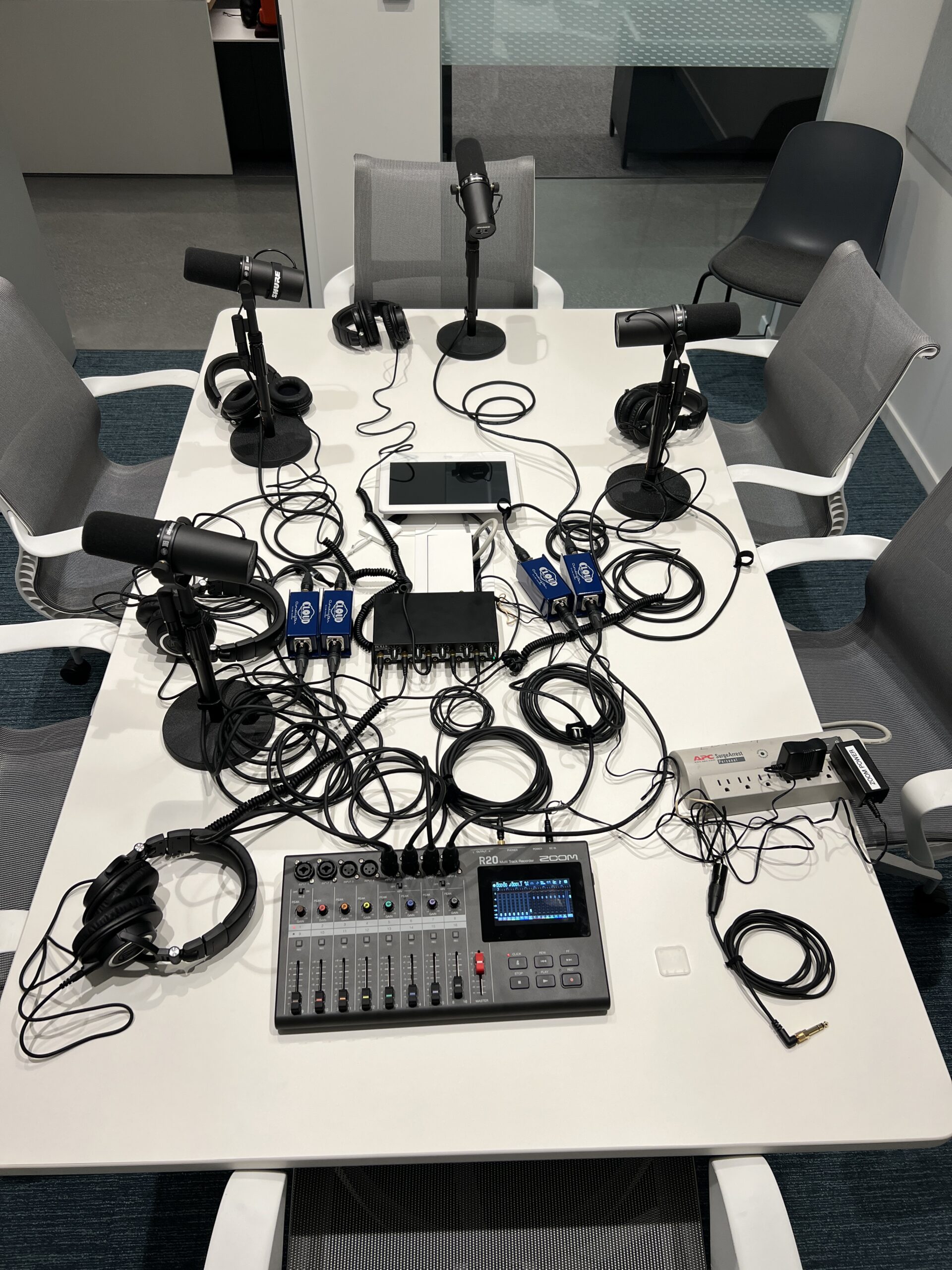
Meet your hosts:
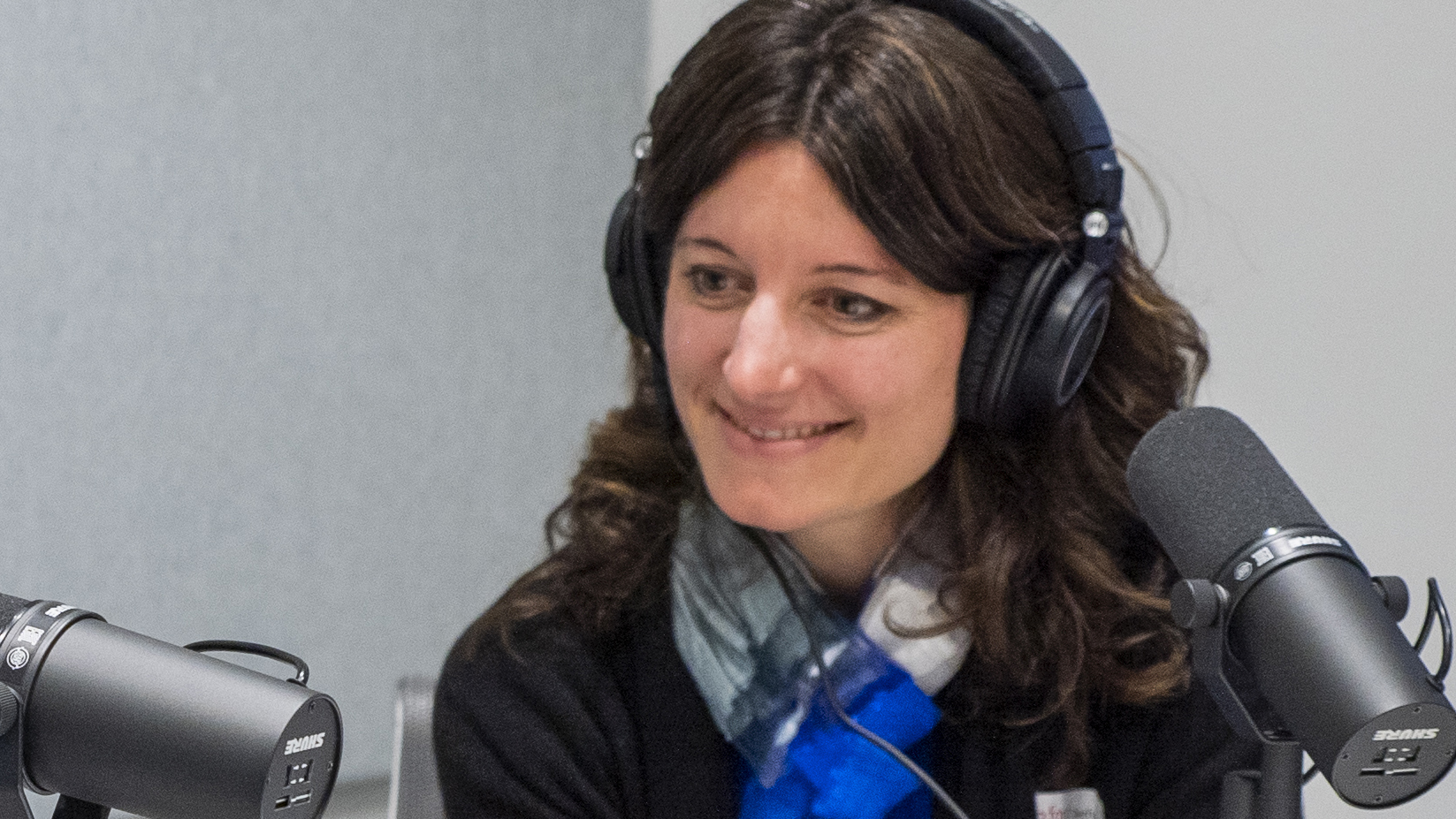
Stephanie Smith
Stephanie is a pediatric oncologist and clinical researcher with a focus on cancer survivorship at Stanford Medicine.
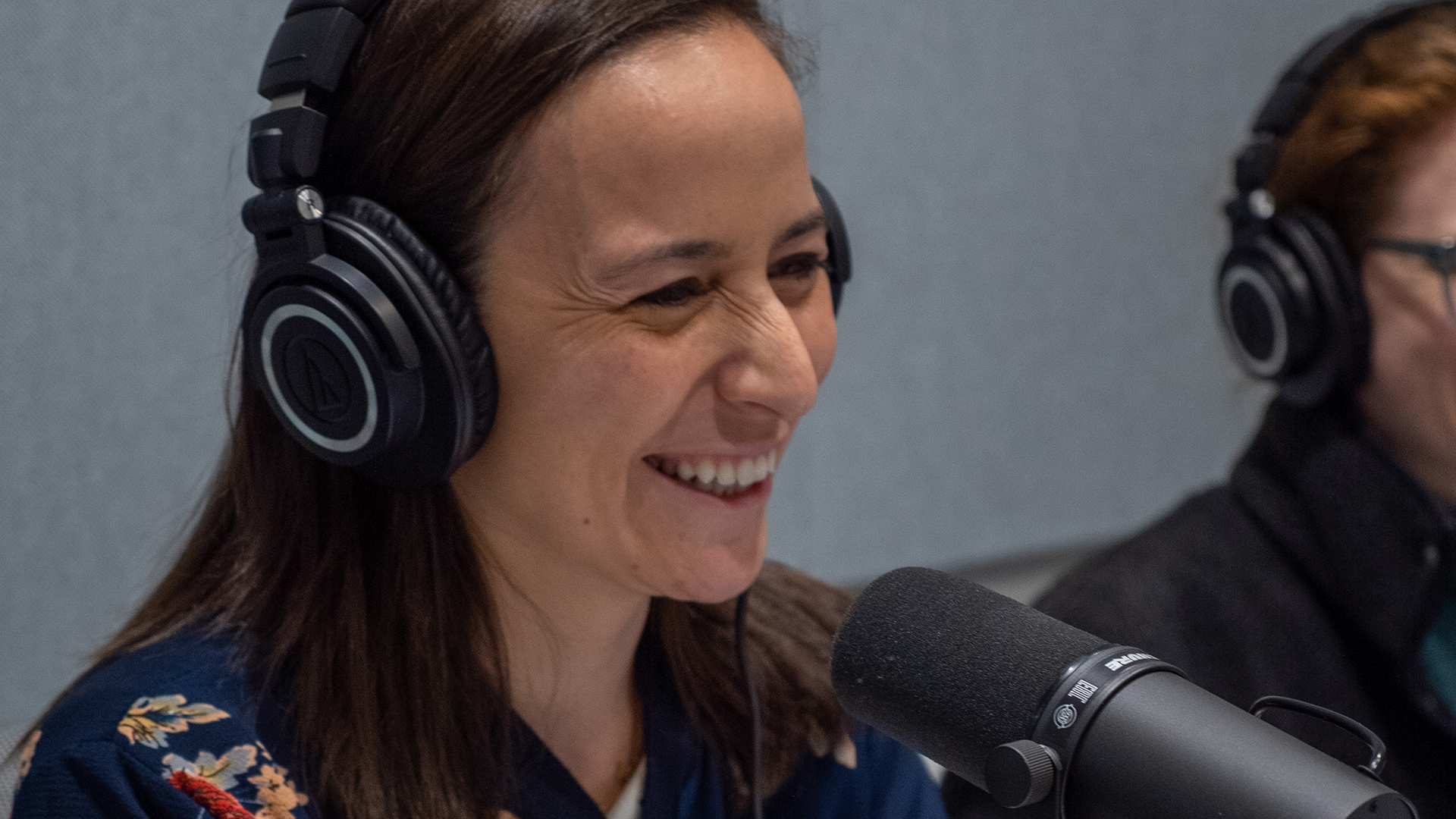
Natasha Steele
Natasha is a young adult cancer survivor, an internist and researcher, and an incoming faculty member at Stanford Medicine.
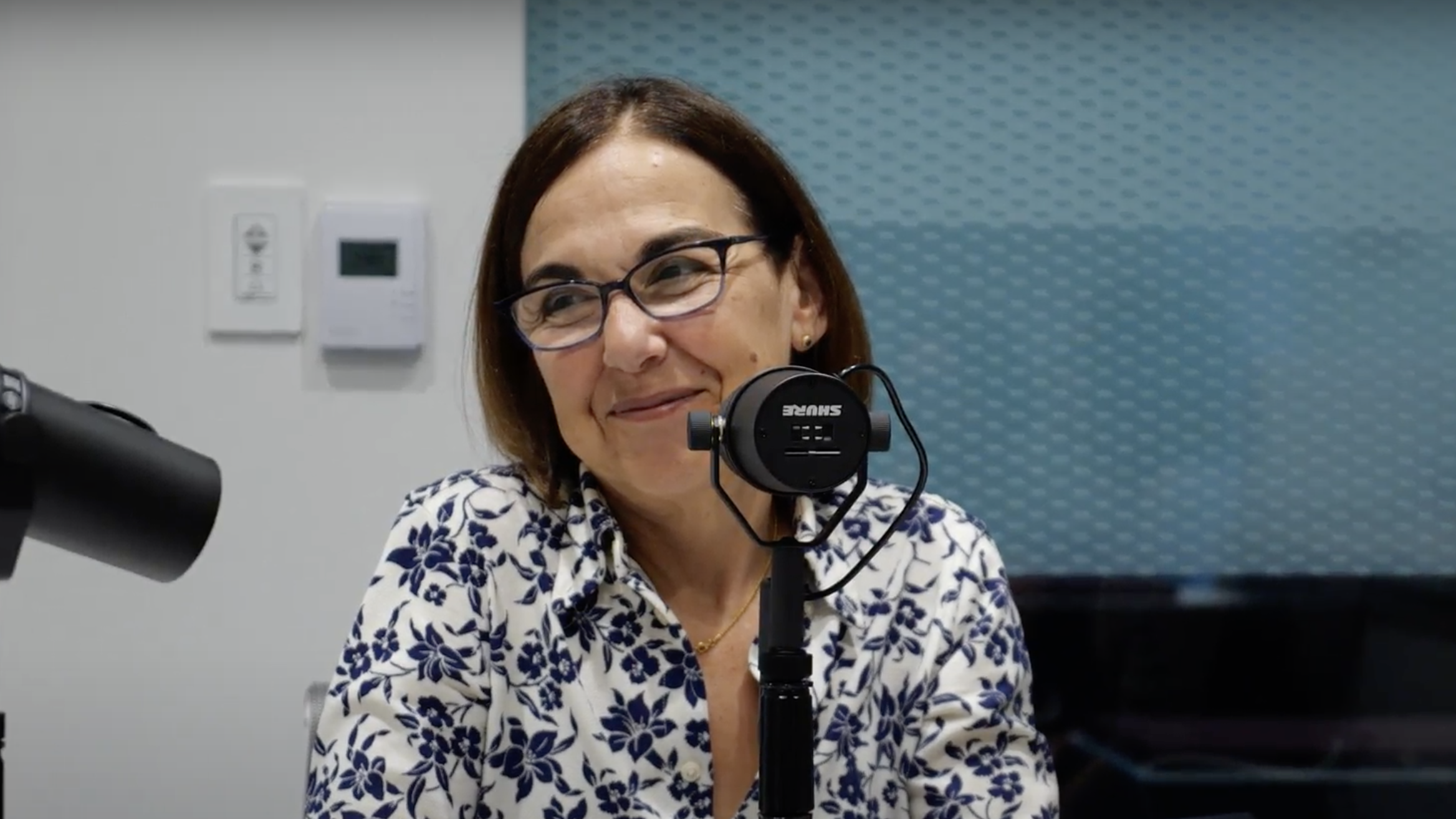
Lidia Schapira
Lidia is the director of the Stanford Cancer Survivorship Program and the executive producer of Health After Cancer.


